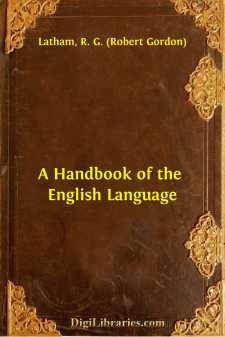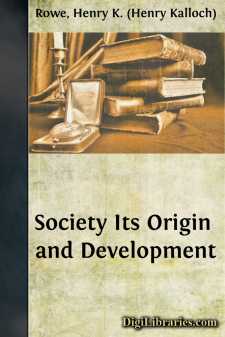Categories
- Antiques & Collectibles 13
- Architecture 36
- Art 48
- Bibles 22
- Biography & Autobiography 813
- Body, Mind & Spirit 142
- Business & Economics 28
- Children's Books 15
- Children's Fiction 12
- Computers 4
- Cooking 94
- Crafts & Hobbies 4
- Drama 346
- Education 46
- Family & Relationships 57
- Fiction 11829
- Games 19
- Gardening 17
- Health & Fitness 34
- History 1377
- House & Home 1
- Humor 147
- Juvenile Fiction 1873
- Juvenile Nonfiction 202
- Language Arts & Disciplines 88
- Law 16
- Literary Collections 686
- Literary Criticism 179
- Mathematics 13
- Medical 41
- Music 40
- Nature 179
- Non-Classifiable 1768
- Performing Arts 7
- Periodicals 1453
- Philosophy 64
- Photography 2
- Poetry 896
- Political Science 203
- Psychology 42
- Reference 154
- Religion 513
- Science 126
- Self-Help 84
- Social Science 81
- Sports & Recreation 34
- Study Aids 3
- Technology & Engineering 59
- Transportation 23
- Travel 463
- True Crime 29
Is Slavery Sanctioned by the Bible?
by: Isaac Allen
Categories:
Description:
Excerpt
If there is one subject which, above all others, may be regarded as of national interest at the present time, it is the subject of Slavery. Wherever we go, north or south, east or west, at the fireside, in the factory, the rail-car or the steamboat, in the state legislatures or the national Congress, this "ghost that will not down" obtrudes itself. The strife has involved press, pulpit, and forum alike, all compromises by political parties, and the desperate attempts at non-committal by religious bodies, it only grows wider and deeper.
But the distinctive feature of this, as compared with other questions of national import, is, that here both parties draw their principal arguments from the Bible as a common armory of weapons for attack and defense. On the one side, it is claimed that slavery, as it exists in the United States, is not a moral evil; that it is an innocent and lawful relation, as much as that of parent and child, husband and wife, or any other in society; that the right to buy, sell, and hold men for purposes of gain, was given by express permission of God, and sanctioned by Christ and his apostles; that this right is founded on the golden rule; and says Dr. Shannon of Bacon College, Ky., "I hardly know which is most unaccountable, the profound ignorance of the Bible, or the sublimity of cool impudence and infidelity manifested by those who profess to be Christians; and yet dare affirm that the Book of God gives no sanction to slaveholding." All these affirmations are fairly summed up thus: "As slavery was practiced by the patriarchs, received sanction and legality from God in the Mosaic law, and was not denounced by Christ and his apostles, it must have been right. If right then, it is so still; therefore Southern slavery is right."
On the other hand, it is contended that chattel slavery is nowhere warranted or sanctioned by the Bible, but is totally opposed both to its spirit and teachings.
It will be the object of the present discussion to determine which of these opinions is correct.
SLAVERY DEFINED.
What, then, is chattel slavery as understood in American law?
1. It is not the relation of wife or child. In one sense a man may be said to "possess" these; but he can not buy or sell them. These are natural relations; and he who violates them for the sake of gain is branded by all as barbarous and criminal.
2. Not the relation of apprentice or minor. This is temporary, having for its primary object, not the good of the master or guardian, but that of the apprentice or minor, his education and preparation for acting his part as a free and independent member of society; but chattelism is life bondage, for the sole good of the master.
3. Not the relation of service by contract. Here a bond or agreement is implied, and therefore reciprocal rights, and the mutual power of dissolution on failure of either in the terms of mutual agreement; but chattelism ignores and denies the ability of the slave to make a contract.
4. Not serfdom or villeinage. The serf or villein was attached to the glebe or soil, and could not be severed from it, deprived of his family, or sold to another as a chattel; being retained as part of the indivisible feudal community. But the chattel slave is a "thing" incapable of family relations, and may be sold when, where, or how the master pleases.
Chattelism is none of these relations; its principle is "property in man." Its definition is thus given in the law of Louisiana, (Civil Code, art. 35:) "A slave is one who is in the power of his master, to whom he belongs. The master may sell him, dispose of his person, his industry, his labor; he can do nothing, possess nothing, acquire nothing, but what must belong to his master."
South Carolina says, (Prince's Digest, 446,) "Slaves shall be deemed, sold, taken, reputed, and adjudged in law, to be chattels personal in the hands of their owners and possessors, and their executors, administrators, and assigns, to all intents, purposes, and constructions whatsoever."
Judge Ruffin, giving the opinion of the Supreme Court of North Carolina, (case of State v. Mann,) says a slave is "one doomed in his own person and his posterity to live without knowledge, and without the capacity to make any thing his own, and to toil that another may reap the fruits."
We now come to the point at issue: Does the Bible sanction this system?
1. Hebrew Terms.
The Hebrew terms used in reference to this subject are âøÃâ÷Ãâ, auvadh, "to serve;" the noun, âöÃâöÃâ, evedh, "servant" or "bondman," one contracting service for a term of years; éÃâüøÃâºÃ´Ãâ¢Ã¨, saukir, a "hired servant" daily or weekly; ÃÂøÞøÃâ, aumau, and éÃÂôäðÃâøÃâ, shiphechau, "maid-servant" or "handmaid;" but there is no term in Hebrew synonymous with our word slave, for all the terms applied to servants are, as we shall show, equally applicable and applied to free persons....












